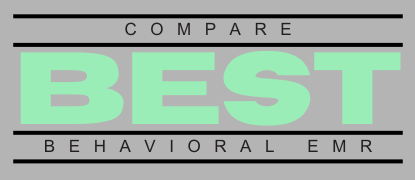
If you’re a behavioral health practice owner or clinician, you already know how vital it is to have the right tools to support trauma-informed care. But let’s be honest, choosing a behavioral health EMR is about as exciting as doing your taxes. Necessary? Absolutely. Thrilling? Not exactly. However, the right trauma-informed EMR can make your day-to-day workflow smoother, empower your clinicians, and most importantly, improve patient outcomes.
So, how do you cut through the noise and find a behavioral health EMR that truly fits your trauma-informed practice? I’ve learned the hard way (trust me, you don’t want to hear about my spreadsheet nightmares) that it comes down to a few critical considerations. Let’s dive in.
Why Trauma-Informed Care Requires Specialized EMR Software
First things first, trauma-informed care isn’t your average clinical approach. It requires a sensitive, personalized documentation style, meticulous tracking, and nuanced decision-making. A generic EMR can feel like trying to fit a square peg into a round hole—awkward, frustrating, and ultimately counterproductive.
According to SAMHSA, trauma-informed care involves recognizing the widespread impact of trauma and understanding pathways for recovery, while avoiding re-traumatization. Your EMR should support these principles, helping you document patient experiences appropriately, track patient progress sensitively, and ensure compliance with trauma-informed best practices.
Features to Look for in a Trauma-Informed Behavioral Health EMR
Let’s go through the essential features that make a behavioral health EMR truly trauma-informed friendly:
1. Customizable Clinical Documentation and Templates
Ever tried documenting trauma-sensitive patient interactions in a rigid EMR template? It’s like trying to paint a masterpiece with crayons. Look for EMRs that offer customizable templates designed specifically for trauma-informed care. Platforms like TherapyNotes, SimplePractice, and Opus often provide adaptable templates that clinicians can tailor to individual patient needs.
2. Enhanced Privacy and Security Features
Trauma-informed care demands heightened patient confidentiality. Your EMR should reflect this need with robust privacy and security measures. Look for software that meets HIPAA compliance standards, offers role-based permissions, and provides secure messaging and data encryption. The Department of Health and Human Services offers guidelines on EMR security to help you evaluate your options.
3. Patient Portal and Communication Tools
Empowering patients is a core tenet of trauma-informed care. Your EMR should facilitate patient engagement through a secure patient portal. This gives your patients access to their treatment plans, secure messaging, and appointment scheduling, reinforcing their sense of control and involvement in their recovery. EMRs like Opus, Kareo by Tebra, and Valant often excel in providing user-friendly patient portals.
4. Outcome Tracking and Analytics
Tracking outcomes isn’t just for data nerds (although speaking as a self-admitted data nerd, it can be oddly satisfying). Outcome tracking helps you measure patient progress objectively, identify trends, and adjust treatment plans accordingly. Look for an EMR that provides intuitive reporting and analytics dashboards, enabling you to visualize patient outcomes over time.
5. Integration Capabilities with Other Systems
Let’s face it, your EMR doesn’t exist in a vacuum. It needs to integrate smoothly with your billing system, CRM, and other practice management tools. Integration eliminates double data entry (hallelujah!) and streamlines your workflow, leaving you more time to focus on patient care. EMRs such as Opus, TherapyNotes, and NextGen often provide robust integration capabilities.
Questions to Ask When Evaluating Behavioral Health EMRs
Shopping for EMR software isn’t exactly like choosing a Netflix show (though sometimes similarly overwhelming). Here are some key questions to ask:
- Does this EMR offer customizable templates specifically designed for trauma-informed care?
- Can I securely and privately communicate with patients through this EMR?
- Will this EMR integrate seamlessly with my existing billing and CRM systems?
- How user-friendly is this EMR for both clinicians and administrative staff?
- What training and support does the EMR vendor offer?
By asking these questions upfront, you’ll save yourself the headache (and heartache) of investing in software that doesn’t truly support your trauma-informed approach.
Real-Life Example: Learning from My EMR Mistakes
I remember my first EMR selection—I chose purely based on cost. Rookie mistake! Soon, clinicians were spending extra hours adjusting generic templates and documenting sensitive trauma details in awkward places. Patient engagement suffered, and staff were frustrated. Eventually, we switched to an EMR specifically designed for behavioral health (I won’t name names but let’s just say it rhymes with “Focus”). The difference was night and day: workflows became smoother, patients felt more empowered, and the team felt supported.
Making Your Final EMR Decision
Choosing the right trauma-informed EMR isn’t just about features. It’s about finding the right fit for your practice culture and clinical philosophy. Take advantage of free demos, ask peers for recommendations, and don’t rush your decision. If you’re struggling to narrow down your choices, consider getting a free practice analysis. An expert can help match your unique needs with the perfect EMR solution.
Final Thoughts: Your EMR Is a Critical Partner in Trauma-Informed Care
Your EMR isn’t just software—it’s a partner in delivering high-quality, trauma-informed patient care. The right behavioral health EMR will empower your clinicians, streamline your operations, and enhance patient outcomes. Take your time, ask the right questions, and keep your patients’ needs at the heart of your decision-making process. Your future self (and your patients) will thank you.
